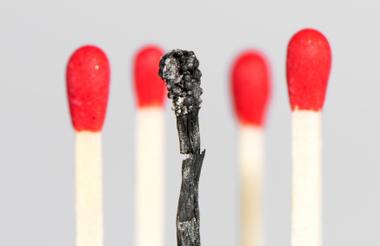Charities must do more to support their fundraisers, many of whom are facing burnout from the stresses of their job, a report published today has warned.
The report published by fundraising think-tank Rogare, entitled Caring Too Much, explores the factors that cause stress to fundraisers
Researchers found that many fundraisers cited repeated exposure to others’ trauma and grief, whether from charity beneficiaries or donors, as a source of emotional strain.
It identified four key drivers of stress and burnout among fundraisers, including their “inherent empathy”, which can be a source of “emotional distress” for many.
The report says fundraisers’ predisposition to put others’ and their organisation’s needs before their own can also cause stress.
It says fundraisers often feel pressure to achieve “more for less”, working under an assumption that they can “deliver the impossible” while simultaneously experiencing isolation.
Writing in the report’s foreword, Rogare chairman Damian Chapman described burnout as “endemic” in fundraising, adding: “It is a silent and devastating crisis in the fundraising profession”.
The report comes at a time when others such as Charity Well researcher Claire Warner have reported burnout as a major problem facing charity employees.
‘The intensity of work feels worth it’
Conducted by Michelle Reynolds, chief executive of bereavement support charity Anam Cara, with contributions from fundraiser Colin Skehan, the report is based on the experiences of fundraisers in the Irish charity sector.
Reynolds said: “Many fundraisers are so committed to their organisation’s mission that the intensity of work feels worth it. But this extra effort often comes at the expense of fundraisers’ mental health and wellbeing.
“Charities need to do more to support their fundraisers.
“While fundraisers often put themselves forward to do more, it is impossible to ignore the concomitant cultural expectation and pressure from organisations and leadership that this is what fundraisers ought to do.
“In fact, perhaps this has been overlooked for too long.
“Fundraisers need to be empowered and enabled to hold boundaries around workload, to find their individual comfort level around exposure to others’ traumatic experiences, and resist the self-imposed yet seemingly reinforced-by-others belief that they must be ‘always on’ and put everyone else’s needs ahead of their own.”
Related articles











